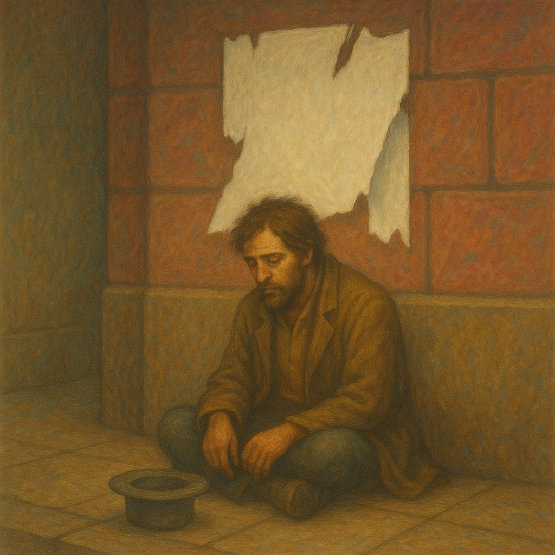Debate over the term 'beggar' raises questions about the boundaries of discriminatory language and dignity.
The Importance of Language
We are now standing in the midst of an era where tradition and modernity, analog and digital, customs and innovation are constantly intersecting. The inertia of history, the habits of culture, and the rapid advancement of technology have transformed the way we live, and at the center of this change, 'language' is being illuminated anew. Language is not just a means of communication it is a mirror that reveals the values and unconscious attitudes of a society. Words can connect relationships, but they can also easily become walls. Sometimes, a single unintended word can act as violence that erases someone's existence, and careless expressions can leave deep wounds on social minorities. In such a reality, we can no longer ignore the ethical responsibility of language.
The Seriousness of Hatred
The more familiar a word is, the more powerful its impact. Because it is used so commonly, it becomes ingrained in our daily lives before we even recognize the discrimination and violence it implies. One such word is 'beggar.' While it may seem like a simple expression at first glance, it encapsulates how we have differentiated, evaluated, and excluded people.
Shadows of the Past: 'The Beggar'
The term "beggar" originally referred to someone who sought help for survival. In communal societies, poverty was recognized not as an individual's responsibility but as a challenge for the entire community, and caring for the less fortunate was seen as a moral obligation. Misfortune was a reality to be shared, and compassion was a natural sentiment. However, as times changed, this word gradually started to acquire connotations of mockery, contempt, and hatred. With the deepening of capitalism and a competition-centered social structure, poverty was no longer seen as a structural issue but rather as an individual failure, and the term "beggar" became language that stigmatized people as incompetent and worthless, beyond mere financial hardship. This change paradoxically illustrates that language is not merely a tool that reflects reality but possesses the power to define and distort it.
Current Landscape: Digital and Language
The digital age has exponentially increased the speed at which language spreads. In memes, humor, comments, and video subtitles, the term 'beggar' is sometimes used as a device to provoke laughter and at other times as a tool for mocking someone. However, within these jokes lies a narrative of old hatred. While words have become lighter, that lightness can leave deep and heavy wounds on someone. The anonymity and immediacy of social media have obscured responsibility for language. Phrases like 'It's just a joke' and 'Everyone says that' have become alibis that conceal and diminish the violence inherent in language. As a result, careless language directed at social minorities such as the poor, migrants, and people with disabilities further isolates their lives and erects another 'invisible wall' in our society.
Change for the Future: The Power of Language Restoration
Now we must reflect. What language are we using to shape the future? And by choosing certain words, what community are we imagining? First, the change must start from the realm of education. Language is a matter of sensitivity rather than knowledge, and it is a habit that must be nurtured from childhood. Schools are not merely spaces for transmitting information they are the first society where we learn the language of coexistence. We must teach how discriminatory language leaves wounds and how respect enriches the community. Secondly, media and platforms cannot be free from the responsibility of language either. Content is not just information it constructs a frame for seeing the world. Along with technical devices that filter out hate speech, we need more content that spreads the value of inclusivity. One story has the power to change a person, and a person has the power to change society. Thirdly, an individual's way of speaking determines the culture of the entire society. Stopping small jokes and choosing the attitude of listening instead of using expressions that belittle others is not trivial. Language is the seed of culture, and each word we say becomes the everyday language of the next generation.
Conclusion: The Change of Language
The word 'beggar' is no longer a simple expression. It is a reflection of how we view human beings and the kind of society we wish to create. Language can elevate people or tear them down. Therefore, the ethical sensitivity regarding what words we choose not to use and what new words we create is the most important question we must face right now. Grand movements that change the world do not always start from enormous ideologies. Change begins with a single word spoken today, a current expression. Right now, what language are you using to change the world?

Post a Comment